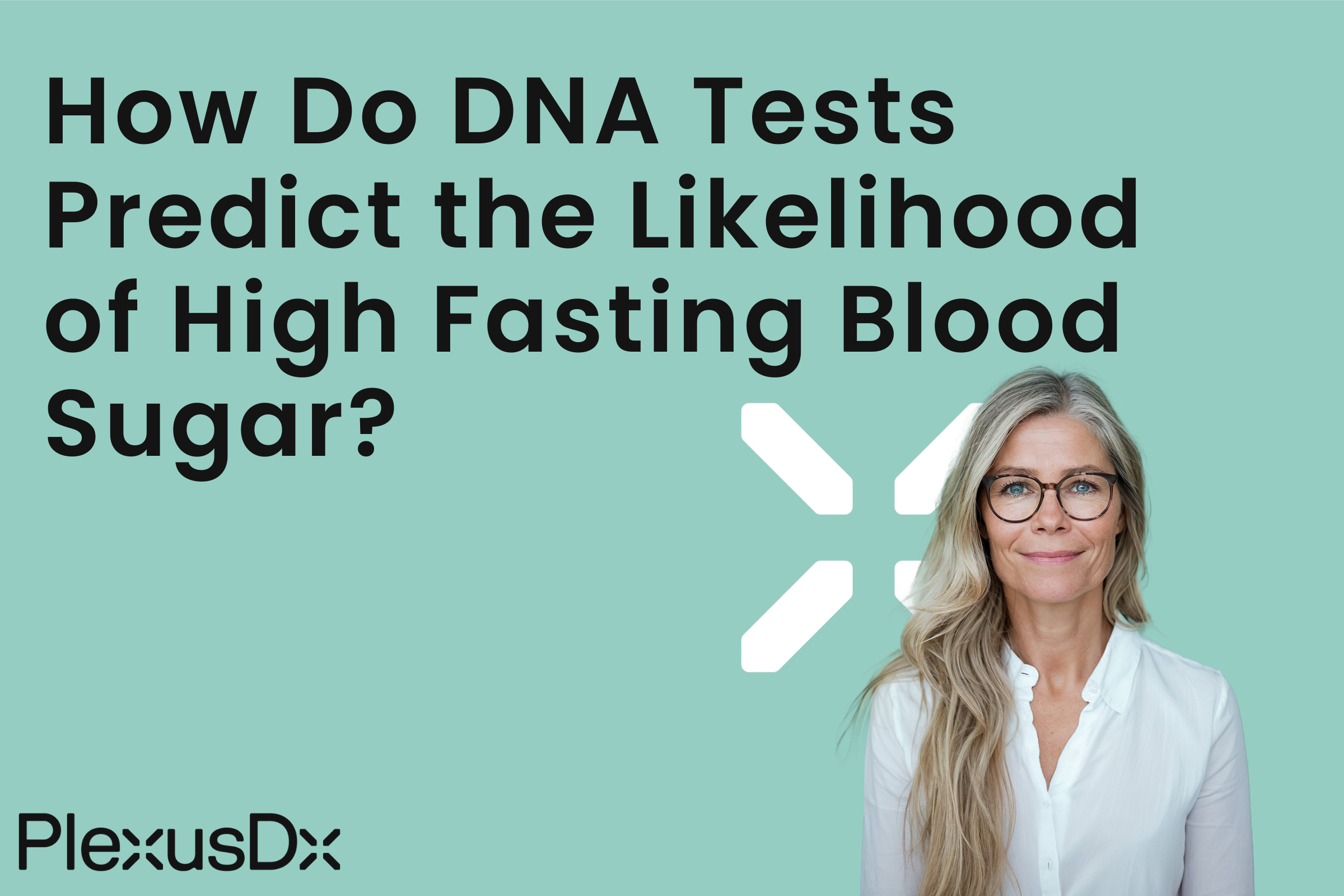What Mechanism Enables DNA Tests to Determine the Probability of High Fasting Blood Sugar?
Do you know how your genetic code contributes to your health risks especially with regards to high fasting blood sugar conditions? DNA tests gain popularity as personalized health solutions grow because they allow us to understand our specific health risks. This blog post examines the capability of DNA tests to forecast high fasting blood sugar risks and why this knowledge plays a fundamental role in your health journey.
The primary assertion is that DNA tests which examine genetic markers linked to glucose metabolism offer important information about your risk for elevated fasting blood sugar levels. Understanding genetic factors enables you to take active measures toward better health management.
The relationship between genetic factors and blood sugar levels provides essential understandings for managing health outcomes. Understanding the genetic factors that control glucose metabolism allows us to comprehend how DNA tests forecast elevated fasting blood sugar levels. Genetic factors like the GLUT2 and GCK genes determine the body's glucose processing mechanisms. Changes in these genes influence insulin sensitivity and glucose tolerance which play essential roles in sustaining proper blood sugar levels.
People possessing particular genetic variants face an increased risk of insulin resistance which results in their body's cells not responding properly to insulin. Elevated fasting blood sugar levels can develop as a consequence over time. A DNA test allows you to discover these genetic risks and better understand your risk profile.
DNA testing participants commonly share that understanding their genetic information provides them with power over their health. Numerous people reported that discovering their genetic risks helped them feel empowered to change their lifestyle. The discovery of genetic predisposition to insulin resistance through testing prompted an individual to change their lifestyle with a healthy diet and exercise which resulted in better blood sugar management.
How DNA Tests Work
Genetic tests determining high fasting blood sugar risk examine particular DNA markers related to glucose metabolism. Here’s how the process generally works:
Sample Collection: To begin testing you must provide a sample typically taken from saliva or a cheek swab which will be delivered to a laboratory for examination.
Genetic Analysis: The laboratory analyzes your DNA to identify genetic variations that affect how your body regulates sugar levels.
Report Generation: A comprehensive report presents your genetic predispositions which detail potential risks for high fasting blood sugar.
The non-invasive procedure provides you access to important information about your genetic health status. You can use the results as a useful instrument during consultations with your healthcare provider to make educated health decisions.
Practical Advice: Follow up on your DNA test results with immediate health actions.
After obtaining your DNA test results you should immediately implement steps to manage your health with effectiveness. Here are some practical tips to consider:
-
Consult with a Healthcare Provider
Make sure to talk to a healthcare expert about your DNA results before implementing major lifestyle changes. Healthcare providers have the expertise to analyze your DNA test results and create a customized health strategy based on your genetic makeup. -
Monitor Your Blood Sugar Levels
By routinely measuring your fasting blood sugar levels you can effectively monitor your health progress and discover any worrying patterns. Many people can access home glucose monitors which show instant information about how their daily habits affect blood sugar levels. -
Adopt a Balanced Diet
Emphasize eating whole foods in your diet which includes:
- Fruits and vegetables
- Whole grains
- Lean proteins
- Healthy fats
-
Incorporate Regular Physical Activity
Maintaining proper blood sugar levels relies heavily on regular exercise. Strive to achieve no less than 150 minutes per week of moderate aerobic exercises together with strength training sessions. Engaging in physical activity improves the body's insulin sensitivity which allows for more efficient glucose utilization. -
Manage Stress
Long-term stress exposure adversely affects how your body manages blood sugar levels. Add stress-reduction practices to your daily routine by practicing:
- Meditation
- Yoga
- Deep breathing exercises
Conclusion
DNA tests offer important information about your genetic risk factors for elevated fasting blood sugar levels. Once you learn about your genetic risks you can implement measures to better handle your health. Always seek guidance from a healthcare provider to understand your test results and create an individualized health plan.
Discover the Precision Health & Wellness tests available from PlexusDx at PlexusDx.com, Amazon and Walmart and take the first step today. A thorough knowledge of your genetic profile serves as a significant resource throughout your health journey while appropriate information enables you to make knowledgeable choices for your well-being.
Where to Buy PlexusDx Genetic Tests
Ready to take control of your health with precision genetic insights? You can purchase the PlexusDx Glucose, Insulin and GLP-1 Genetic Test from these trusted retailers:
- 👉 PlexusDx – Order directly from our official website.
- 👉 Amazon – Convenient shopping with fast shipping.
- 👉 Walmart – Buy online from a trusted retailer.
Get your personalized DNA insights today and start optimizing your health! 🚀

Share:
Can a DNA Test Help Identify Hashimoto’s Thyroiditis Risk?
What Does a Methylation Test Tell You?